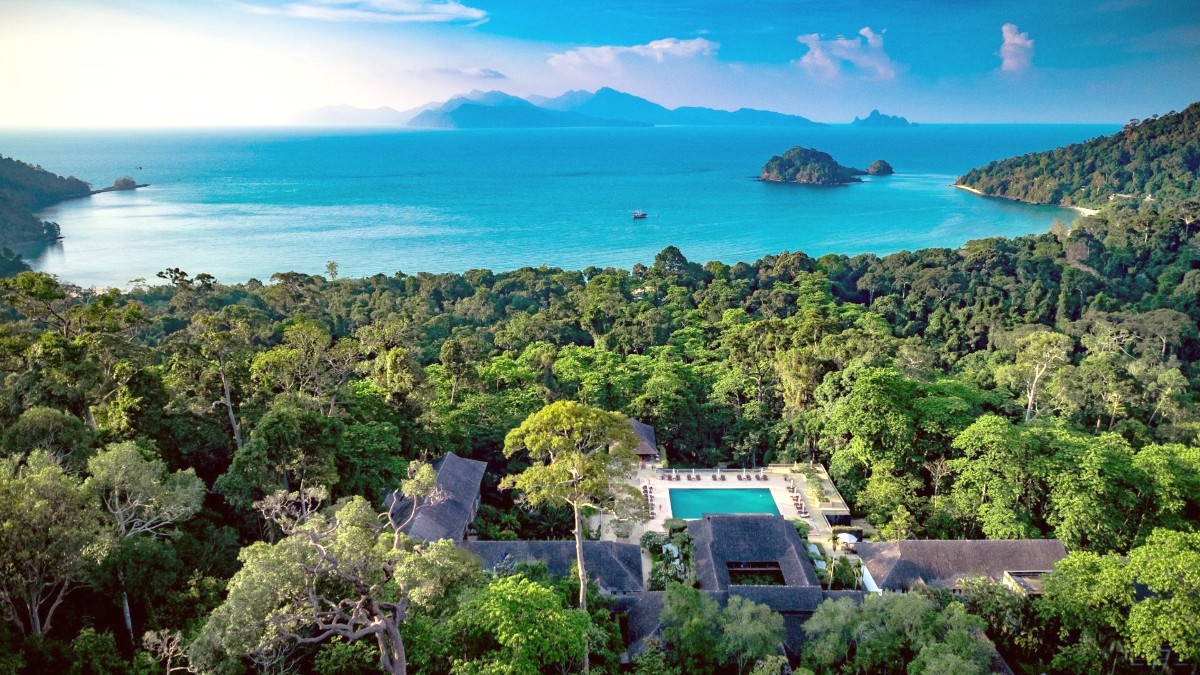
Peninsular Malaysia West Coast, Malaysia
Kilim Geoforest Park (UNESCO Global Geopark) and Pulau Payar Marine Park are conservation sites. Adhere to all rules, stay on marked trails, and do not touch marine life or remove natural elements.
Waste management poses a challenge. Littering is an issue. Recycling facilities are limited outside of major hotels. Contribute by minimizing your waste production.
Langkawi relies on its freshwater sources. Be mindful of water usage during your stay. Take shorter showers and reuse towels when at hotels.
Interacting respectfully with Langkawi's local culture enriches your experience and shows appreciation for the community.
Support local arts and crafts by purchasing authentic products from local artisans. This helps sustain traditional skills and cultural heritage. Respect traditional customs and practices you observe.
Dress modestly, especially when visiting religious sites or local villages, as a sign of respect. Ask permission before photographing people, especially children, to respect their privacy.
Avoid intrusive photography, especially in private settings or of individuals who appear uncomfortable. Always ask for permission first. Respect privacy and be mindful of your surroundings.
When visiting mosques, temples, or other religious sites, remove your shoes before entering. Dress modestly, covering your shoulders and knees. Women should also cover their heads in mosques. Be quiet and respectful.
Support businesses that demonstrate commitment to environmental protection and cultural integrity. Choosing eco-friendly operators is a good approach. G Adventures is one such ethical tour operator.
Your travel choices can lead to a positive economic impact on the local community.
Seek chances to engage with local communities. Supporting small local businesses directly, like a family-run guesthouse or a local hawker stall, aids in distributing tourism benefits more widely across the community.
Look for products from local artisans or fair trade initiatives, ensuring the price you pay directly benefits the producer. This nurtures livelihoods and promotes sustainable local economies.
Prioritize local hawker stalls, guesthouses, and locally owned tour operators over large international chains when feasible. This maintains money within the local economy.
Be aware of and avoid tours or activities that exploit animals, like unethical animal shows or interactions not truly conservation-focused. Do not litter or buy items from endangered species.
If you wish to give to those in need, direct your contributions through established local charities or non-governmental organizations (NGOs) rather than directly to beggars. This ensures your donation reaches those who can benefit most and discourages begging.
Find sustainable outdoor gear from Patagonia for your travels.
Discover reusable products to minimize waste at Package Free Shop.
Support conservation efforts through purchases at The Rainforest Site.
Direct your charitable contributions to recognized local organizations. This practice ensures your assistance reaches those most in need effectively.
Maintain awareness of your surroundings, especially in crowded areas. Secure your valuables and avoid displaying large sums of cash. Use reputable transportation services, like Grab, especially after dark.
Stay hydrated, especially given the tropical climate. Drink bottled water. Protect yourself from the sun with sunscreen and hats. Mosquito repellent is advisable, especially during dawn and dusk. Always travel with a basic first-aid kit.
Enjoy local cuisine but exercise discernment, especially with street food. Choose stalls with high customer turnover and visible hygiene practices. Only consume well-cooked food and peeled fruits. Avoid tap water; stick to bottled or purified water.
Know the local emergency numbers. Keep copies of important documents (passport, visa) separately from the originals. Consider travel insurance for medical emergencies or unforeseen circumstances. Locate the nearest embassy or consulate for your country.
Acquiring comprehensive travel insurance before your trip is a wise step. This policy should cover medical emergencies, trip cancellations, and lost luggage. Langkawi has hospitals and clinics for routine and emergency medical care.
A comprehensive policy covers medical emergencies, trip disruptions, and lost items.
Langkawi hosts hospitals and clinics for various medical needs.
Bring any necessary prescription medications, with a doctor's note if needed.
Always trust your instincts. If a situation feels unsafe, remove yourself from it. Your safety is of utmost importance.